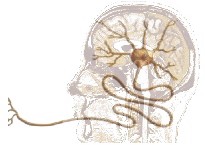 HPS 2359 Methods, Models, and Measurements in the Neural, Behavior, and Cognitive Sciences
HPS 2359 Methods, Models, and Measurements in the Neural, Behavior, and Cognitive Sciencesversion 2023-04-06
NOTE: THIS SYLLABUS IS A LIVING DOCUMENT. THE READING LIST WILL BE ADJUSTED AS WE GO.
 HPS 2359 Methods, Models, and Measurements in the Neural, Behavior, and Cognitive Sciences
HPS 2359 Methods, Models, and Measurements in the Neural, Behavior, and Cognitive Sciences
Spring 2023 Schedule and Syllabus
Meeting time; location: T 2-4:30; CL 1008C
Instructor
(Prof.) Colin Allen
<colin.allen@pitt.edu>
Office: CL 1109H
Office hours: M 3:20-5:00 in CL 1109H (and on Zoom by appointment)
Course Description
Mathematical, and statistical treatments of behavior and cognition were central to the emergence of psychology as scientific discipline in the late 19th C., were a driving force for developments in statistical testing, in measurement theory, and in computational modeling during the 20th C., and continue to be important for ongoing debates about the so-called replication crisis in psychology, and different views about the value of formal, mathematical, and computational models in cognitive science. Other topics of interest to philosophy of science include the interplay between statistical models and experimental design, particularly where the latter rely on methods that generate large amounts of noisy data, such as EEG or fMRI. Bayesian, information theoretic, dynamical, and mechanistic approaches to explanation all have different implications for understanding the relationship between cognition and nervous systems.
The spring 2023 version of this course will focus largely on the subdiscipline known as mathematical psychology, covering questions about the nature and significance of distinctions among process and phenomenal models, as well as the relative merits of different modeling frameworks. These topics will lead us to more general issues concerning the epistemic and explanatory status of cognitive models, pragmatism in modeling choices, and methods for evaluating models as well as the relationship of cognitive models to neuroscience.
There will be maths! (But we will work through it together.) (And see Additional Resources below the schedule.)
Course Objectives
Aside from acquiring the necessary background in cognitive modeling, the main goal of this seminar is for you to develop a research paper on any philosophical issue raised during the course. You will write a proposal, draft, engage peer reviews, and the final paper. You will also be asked to give at least one presentation based on the reading list, and you will also give a presentation based on your developing research ideas during the last month of the course.
Texts
Schedule of Readings and Presentations
This is a rough guide only. We are going to adjust this as we go along, based on participant interest.
NOTE: SOMETIMES LINKS BREAK. IF SOMETHING CAN'T BE REACHED, PLEASE LET ME KNOW IMMEDIATELY.
| Date | Topic | Reading Assignments |
|---|---|---|
| Tue 01/17 | Promise and difficulties of mathematical models |
• Navarro 2021 • Luce 1995 |
| Tue 01/24 | Difficulties |
• Luce 1995 • Estes 2002 |
| Tue 01/31 | Dynamics / Concepts & categories |
• Beer 2023 |
| Tue 02/07 | Concepts & categories cont'd |
• Nosofsky & Zaki 2002 • Kruschke 2008 |
| Tue 02/14 | Model Selection |
• Shiffrin 2008 • Evans 2019 |
| Tue 02/21 | Predicting mathpsych |
• Luce 1999 • Townsend 2008 |
| Tue 02/28 | Constructing models |
• van Rooij & Baggio 2021 • Boorsboom et al. 2021 |
| Tue 03/07 | Spring Break, no class! | |
| Tue 03/14 | Theory construction |
• van Rooij 2020 (Choi) • Vigo 2021 |
| Tue 03/21 | Bayesian Mathpsych? |
• Griffiths et al. 2010 (Cole) • Beck et al. 2008 |
| Tue 03/28 | Neuro Mathpsych? |
• Palmeri et al. 2017 (Jenny) • Soto and Ashby 2023 |
| Tue 04/04 | Animals |
• Smith et al. 2014 (Madeleine) • Allen 2014 |
| Tue 04/11 | Philosophy Models |
• Wimsatt 1987 Read only through the bottom of p.8, i.e. through the section titled "12 things to do with false models". You also only need to skim the section "The concept of a “neutral model” (beginning p.3) • Batterman & Rice 2014 |
| Tue 04/18 | More Philosophy of Models |
• Cummins 2000 (Joshua) • Buckner 2011 (Sameera) |
Statement for Students with Disabilities
The
Americans with Disabilities Act (ADA) is a federal anti-discrimination
statute that provides comprehensive civil rights protection for
persons with disabilities. Among other things, this legislation
requires that all students with disabilities be guaranteed a learning
environment that provides for reasonable accommodation of their
disabilities. If you believe you have a disability requiring an
accommodation, please visit Pitt
Student Affairs Disability Resources and Services for further information.
Statement about Academic Misconduct
Students in this course will be expected to comply with the University of Pittsburgh’s Policy on Academic Integrity.